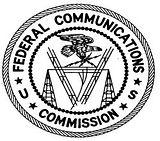 Congress shall make no law respecting an establishment of religion, or prohibiting the free exercise thereof; or abridging the freedom of speech, or of the press; or the right of the people peaceably to assemble, and to petition the Government for a redress of grievances.
Congress shall make no law respecting an establishment of religion, or prohibiting the free exercise thereof; or abridging the freedom of speech, or of the press; or the right of the people peaceably to assemble, and to petition the Government for a redress of grievances.1st Amendment: United States Constitution
The Supreme Court has once again decided to allow the FCC to run rampant over the rights of American broadcasters. It is now perfectly acceptable for them to fine a broadcast company up to $325,000 for any content they find objectionable, even on live programming. The court used one of the favorite arguments of statists everywhere: "It's for the children." Without the protection of the government, how can the American people be protected from the filth in the would? The airwaves would be filled with such horrors as to melt away the viewers' faces. One person arguing for the government claimed that without giving the FCC broad censorship powers "Big Bird would be dropping F-bombs." Justice Antonin Scalia and his colleagues claimed that children imitate what they hear, and since television is so pervasive, it is imperative that we protect them from any indecency on it.
Never mind what the children are exposed to everyday outside of the television. Is the government going to fine parents, the children themselves, or anyone that happens to swear in a public place? Even if we ignore the realities of ever leaving your house, the government is failing to make a logical or accurate argument. The FCC and the Supreme Court claim broadcast companies may be subjected to extraordinary regulation because of the "scarcity" of broadcast signals and the "unique" pervasiveness and accessibility to children. Justice Clarence Thomas, in a concurring opinion, even noted that this reasoning was on increasingly shaky ground. The simple truth is that, even though there was a point in the nation's history when television and radio did have these unique qualities, advancements in technology have rendered those points moot.
It is also very telling that the Supreme Court chose not the address the First Amendment concerns in their ruling. Justice Thomas also pointed out that :
The text of the First Amendment makes no distinctions among print, broadcast, and cable media, but we have done so.Even members of the Supreme Court, the protectors of the Constitution, know that the FCC is violating the First Amendment, but continue to allow them to do so anyway. Censorship is censorship, no matter the reasons. Instead of dealing with the real issue at hand, the court decided to punt back to a lower court to decide if the FCC's actions are Constitutional. They were able to do this because the previous ruling against the FCC was on procedural, and not Constitutional, grounds. If the lower court finds against the FCC on Constitutional grounds, it is very likely this case will come before the Supreme Court again. If that happens they will be forced to do the right thing or show themselves as nothing more then statists in robes.
We the people need to start taking more responsibility and regulate what our families watch ourselves. If you do not support something that is on the television or the radio, change the channel or turn it off, it's that simple. There are even technologies in every modern television that can block questionable content automatically. If we are not able to do this simple thing, how can we do anything without the government holding our hands? This is especially important as the government turns its eyes toward the internet. We must stand strong against them, and not beg them to do our jobs for us. No regulation, no matter how innocuous, must be allowed to pass. Once the government has its claws into something, there is no getting them out.



No comments:
Post a Comment